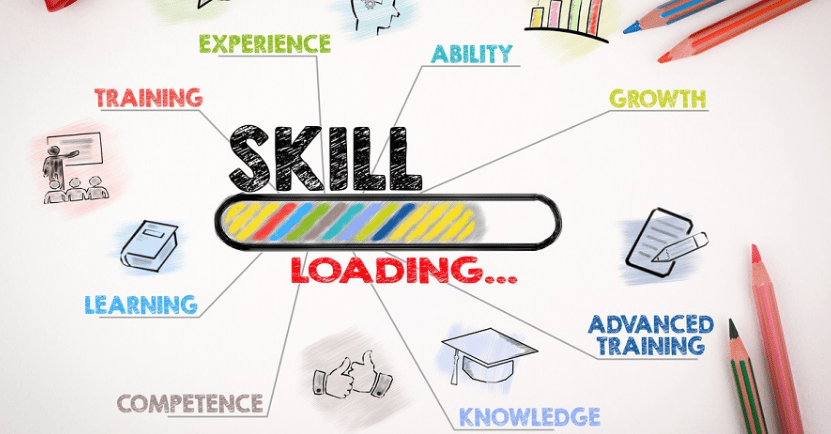"Skill-Based Courses in the New Education Policy: Preparing Students for Real-World Success"
Skilled-Based Courses in NEP


"Skill-Based Courses in the New Education Policy: Preparing Students for Real-World Success"
The New Education Policy (NEP) has ushered in a new era of education in India, emphasizing the importance of skill development alongside academic learning. The integration of skill-based courses within the NEP aims to equip students with practical abilities, competencies, and employability skills necessary for success in the real world. This shift towards a more skills-oriented approach not only enhances students' career prospects but also nurtures a well-rounded and adaptable workforce.
Holistic Development:
Skill-based courses in the NEP promote holistic development by recognizing the importance of practical skills in addition to academic knowledge. These courses encompass a wide range of disciplines such as vocational training, entrepreneurship, digital literacy, communication skills, critical thinking, problem-solving, and teamwork. By incorporating these courses into the curriculum, students receive a comprehensive education that prepares them for the challenges and opportunities they will encounter beyond the classroom.
Enhancing Employability:
One of the primary goals of skill-based courses is to enhance students' employability. These courses focus on developing industry-relevant skills, technical expertise, and professional competencies that are in high demand in the job market. By equipping students with practical skills, the NEP aims to bridge the gap between theoretical knowledge and its real-world application, making students more competitive and prepared for their future careers.
Promoting Entrepreneurship:
Skill-based courses also foster an entrepreneurial mindset among students. The NEP recognizes the importance of nurturing an ecosystem that encourages innovation, creativity, and risk-taking. By providing entrepreneurship-oriented courses, students gain exposure to the fundamentals of starting and managing a business. These courses cultivate an entrepreneurial spirit, empowering students to become job creators rather than job seekers, thus contributing to economic growth and self-reliance.
Flexible Pathways:
The NEP acknowledges the diverse aptitudes and interests of students. Skill-based courses offer flexible pathways for students to explore their passions and talents beyond traditional academic subjects. By providing options for specialized skill development, such as arts, sports, technology, and vocational training, the NEP ensures that every student has the opportunity to excel in an area of their interest, fostering a sense of fulfillment and personal growth.
Industry Collaboration:
An essential aspect of skill-based courses is collaboration with industries and businesses. The NEP emphasizes partnerships between educational institutions and industries to design and deliver skill-based programs that align with industry requirements. This collaboration ensures that students are exposed to the latest industry trends, technological advancements, and real-world challenges. Industry experts and practitioners can also contribute to curriculum development, provide practical training, and offer internship opportunities, enhancing students' readiness for the professional world.
Skill-based courses integrated into the New Education Policy offer a transformative approach to education by emphasizing the development of practical skills alongside academic knowledge. These courses promote holistic development, enhance employability, foster entrepreneurship, offer flexible pathways, and facilitate collaboration with industries. By equipping students with relevant and in-demand skills, the NEP ensures that they are well-prepared for the challenges and opportunities of the modern world. With skill-based education at its core, the NEP paves the way for a future-ready workforce and a thriving economy.